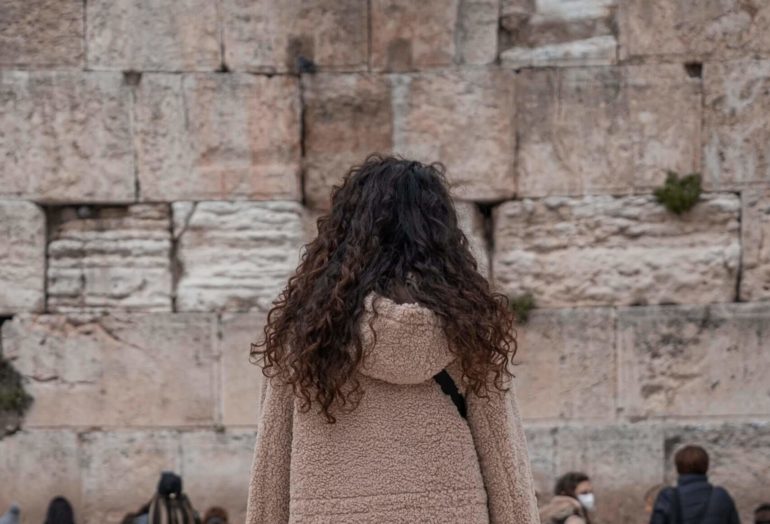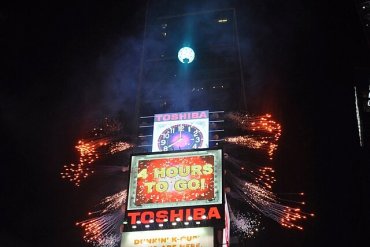
In a World Where Jews Are So Hated, How Do We Find Hope?
Dear Jew in the City,
Up until now, Jews of our generation lived in a bubble, mostly insulated from overwhelming Jew hatred that has always permeated society. Now that the mask is off, we better understand what our ancestors experienced. How did they cope? How did they find joy and hope in a world where we are so hated?
Sincerely,
Jordan
Dear Jordan,
Thanks for your thought-provoking question. Not to be glib, but my initial reaction is, “How old do you think I am?” While I like to joke about my age being advanced, it’s really not. Accordingly, I have no firsthand insight into how people endured the Holocaust, let alone the pogroms, the Inquisition, or the Roman invasion. (There are obviously many more examples I could bring.) Accordingly, my thoughts on this subject are going to be purely speculative. If you’re fortunate enough to have access to a Holocaust survivor (which is getting harder and harder), I encourage you to ask them this question for an eyewitness account!
Your question makes me think of the Jewish calendar. Every summer, we observe a three-week period of intensifying mourning that culminates with Tisha b’Av, which commemorates the destruction of the Temple. We mourn this loss in many ways – refraining from such pleasures as music, bathing for pleasure and meat; fasting; sitting on the floor; and more. We spend three weeks lamenting the loss of the Temple, which is a great spiritual tragedy – our most direct pipeline to God has been severed.
And yet, in the spring we celebrate Purim, which commemorates the Jews’ salvation from the machinations of Haman in Persia. This is followed by Passover, which celebrates our redemption from servitude in Egypt. How can we rejoice on these occasions? Isn’t the Temple still in ruins?
The reality is that we compartmentalize. As King Solomon tells us in the book of Koheles (Ecclesiastes) “Everything has its time… there’s a time to cry and a time to laugh; a time to mourn and a time to dance…” (3:1, 4). The Temple has been gone for 2,000 years, but we can’t mourn it all the time. Part of the year is designated to recognize this tragedy; other times are meant to celebrate joyous occasions.
Torah literature talks a lot about us being joyful. In the Chumash we are told that punishments are brought upon us as a nation “because you did not serve Hashem your God with joy and gladness of the heart” (Deuteronomy 28:47). In Psalms we are told, “Worship Hashem with gladness; come before him with joyful song” ( 100:2). In II Kings 3:15, the prophet Elisha called for musicians so that he could prophesize; as Rambam explains (Yesodei Hatorah 7:4), a prophet needed to be in a joyful mood to be able to commune with the Divine. Rebbe Nachman of Breslov famously said, “It is a great mitzvah to be in a continual state of joy” (Likkutei Moharan II, 24). There are more such statements one could cite.
I assure you that Moshe (who led the Jews out of Egypt and transcribed the Torah), David (who fought battles against many hostile nations and composed Psalms), the prophets (who spent their lives combatting idolatrous antagonists), Rambam (who lived under Islamic rule) and Rebbe Nachman (who lived in 18th-century Poland) were no strangers to Jew-hatred. Each one of them faced it every day. I assume they didn’t care for it, but they didn’t let it rule their lives. They still espoused living lives of joy.
Sure, there’s ugliness in the world, but the Rambam tells us that there’s way more good (Moreh Nevuchim III, 12). We tend to focus on the negative, but if we step back and look at the entirety of creation, we’ll realize how small evil is in the grand scheme of things. There’s no evil in the stars, the planets, or in nature. Evil only exists as a minority percentage of the human experience, which is a tiny fraction of the universal whole.
So, yes, we really did receive a rude awakening recently. It’s shocking and appalling to see how many unabashed antisemites are willing to proclaim their hatred loud and proud. This is definitely something we need to address. But that doesn’t mean that it should become the sole defining characteristic of our lives. We don’t mourn the Temple all year long, though we certainly could do so. Even mourning for a close relative is mitigated for Shabbos and suspended for yom tov. We must recognize and address the negative things in our lives, but we must also appreciate and celebrate the positive things. It may take us a little while to navigate this “new normal,” but we’ll get there. This is what I assume our ancestors did.
Sincerely,
Rabbi Jack Abramowitz
Educational Correspondent
Follow Ask Rabbi Jack on YouTube
If you found this content meaningful and want to help further our mission through our Keter, Makom, and Tikun branches, please consider becoming a Change Maker today.







